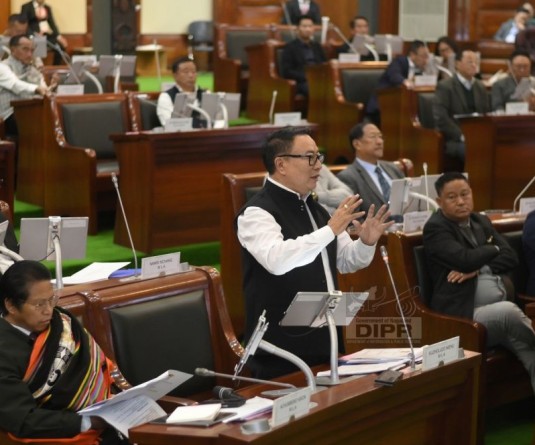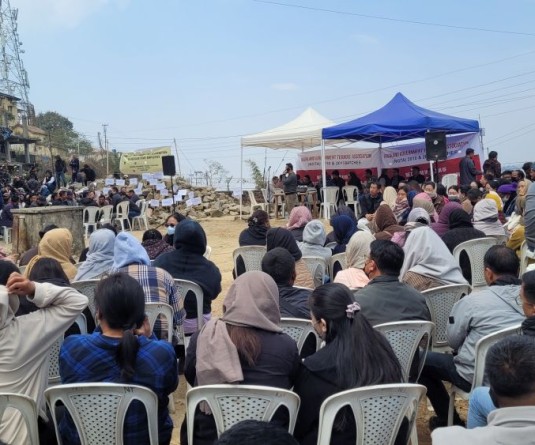Participants during the consultative meeting of stakeholders on Gender Campaign 2 held at the Secretariat Conference Hall, Kohima on January 25. (DIPR Photo)
Kohima, January 25 (MExN): The Department of Nagaland State Rural Livelihoods Mission in collaboration with the Ministry of Rural Development held a consultative meeting of stakeholders on Gender Campaign 2 at the Secretariat Conference Hall, Kohima on January 25.
During the meeting, as per a DIPR report, the Commissioner & Secretary Kevisa Kense, IAS gave a keynote address followed by a presentation on gender campaign and partnership by State Program Manager- SISD, NSRLM, Khriezovonu Lhoungu.
The presentation highlighted that the aim of the national campaign against gender-based violence in India is to address and combat the pervasive issue of violence against women in the country. The campaign seeks to create awareness and mobilize public opinion to bring about a change in societal attitudes towards gender-based violence.
The government at both the central and state levels has a significant role in formulating and implementing policies and programs related to gender equality and combating gender-based violence, it stated.
State departments such as the Social Welfare Department, Justice and Law, Health and Family Welfare Department, Home Department, Planning and Coordination, State Commission for Persons with Disabilities, Tribal Affairs Department were provided with roles for enacting and enforcing laws, allocating resources, and providing essential services such as helplines, shelters, and counselling centres for survivors, it stated.
The presentation reiterated that civil society organisations, such as Naga Mothers’ Association and Eastern Naga Women Association contribute significantly to the gender campaign in India. “They are required to mobilize public opinion, conduct research and documentation, and engage in advocacy and policy dialogues to address gender-based violence and promote gender equality in their respective blocks and villages,” it stated.
The School Education Department as one of the stakeholders has been directed to conduct workshops with focus on girl child and SMCs for girl child related issues -admission drives for drop-outs, to create awareness drive on POCSO etc.
The objectives of the campaign included:
Raising awareness: The campaign aims to educate the general public about the various forms of violence against women, including domestic violence, sexual harassment, rape, and sexual assault.
Sensitizing the society: By sharing real-life stories and testimonies from survivors of gender-based violence. The campaign aims to sensitize society to the extent and severity of the problem. It seeks to foster empathy and solidarity, encouraging people to stand up against violence and support survivors.
Prevent and deter: The campaign aims to prevent incidences of gender-based violence by promoting preventive measures and encouraging bystander intervention.
Support and assist survivors: The campaign seeks to provide information and resources to survivors of gender-based violence, including helpline numbers, counselling services, legal aid, and support groups. It aims to connect survivors with the necessary support systems and facilitate their healing and rehabilitation process.
Influence policy and legal reforms: Through advocacy and public mobilization, the campaign aims to influence policy and legal reforms that address the root causes of gender-based violence. It seeks to work with the government and other stakeholders to strengthen existing laws, ensure their effective implementation, and promote gender-responsive justice mechanisms.
Promote gender equality: The campaign aims to challenge and break down ingrained gender norms and stereotypes that perpetuate violence against women.






